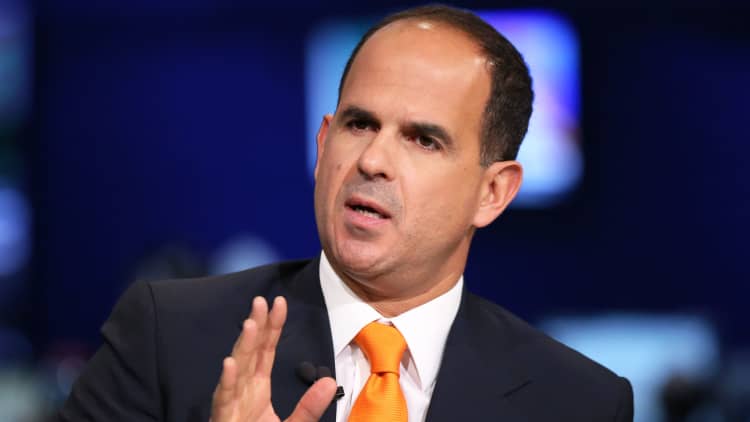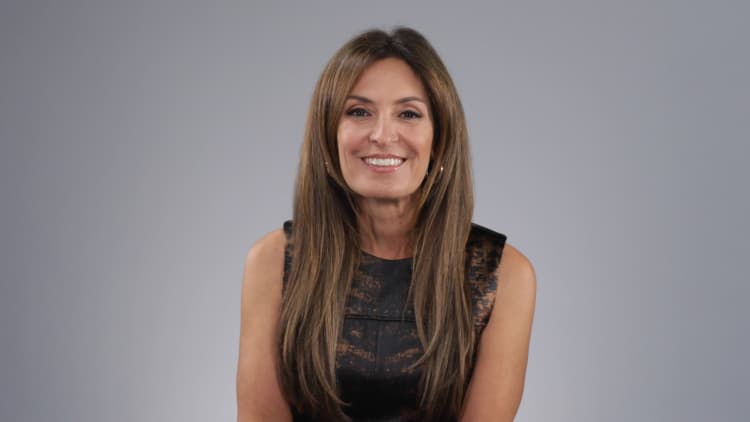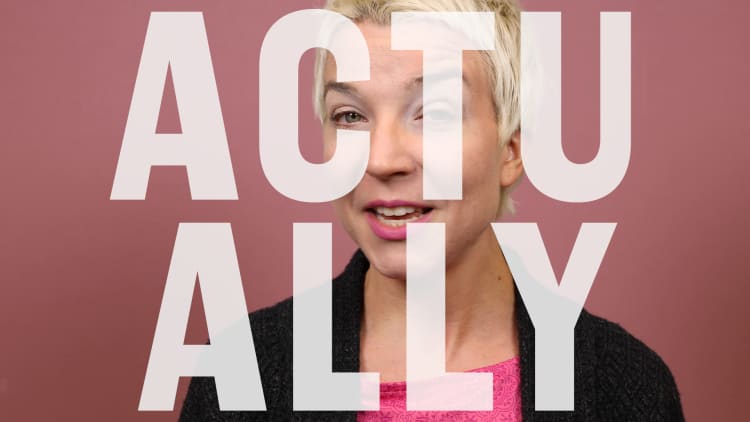Nearly all job interviews will include time at the end for you to ask questions. This is your chance to inquire about the company, discuss the position and show that you were listening, says expert interview coach Barry Drexler.
However, Drexler notes that people often make a crucial mistake when asked "Do you have any questions for me?" by responding with, "No, I don't have any additional questions."
"I tell people, 'never run out of questions. Ever,'" says the interview coach, who has over 30 years of HR experience. "Never say, 'I don't have any more questions.' It's the kiss of the death."
Most interviews last for at least 20 minutes, says Drexler. Typically, the interviewer provides a brief description of the open role, then asks questions about your experience to gauge whether you're a good fit for the position, and finishes with a longer more in-depth description of the job, the company and what's expected of you.
"If someone's just spoken to you for 20 minutes, it's impossible not to have questions," says the HR expert. In fact, he says that interviewers find it "irritating" when applicants don't ask questions.
The first thing someone says is the most important.Barry Drexlerexpert interview coach
During the interview, Drexler explains that you should be paying attention to everything that's being said and making mental notes about topics that you want to explore more deeply during the question-and-answer session.
"The best questions are based on what the person just told you," says Drexler. He adds this crucial piece of advice: "The first thing someone says is the most important."
"So if someone says, 'OK Joe, thanks for telling me all about yourself. Let me tell you what we're working on here,' you'd better listen and write a note," advises Drexler. That way, when the interviewer is done with their 15-minute spiel and asks, "Do you have any questions?" you can quickly glance down at your notes and respond with, "Yes, I do."
Remembering to touch on a point that was made at the beginning of an interview is "powerful," explains Drexler, because it shows that you were listening and that you found that topic important. He says that this is a great way to impress a potential employer.
For example, if an interviewer starts off a lengthy description by saying, "We're looking to service a big client and increase their yearly revenue," some good follow-up responses during the Q&A session would be, "I heard you mention that you're servicing your largest client. Can you tell me who that client is or what's so challenging about that client?" "What would you need from me in order to meet said client's goals?" and "What strategies has your company employed so far and where would I fit in if I were in this role?"

Although Drexler advises that you ask questions based on the in-person interview, he says you can also bring along a list of pre-written questions. However, he warns these questions should only be used as a backup. Pulling out a list of pre-written questions can be a major turn off especially if the interviewer has spent a lot of time describing the job position.
"I would get this all the time," says Drexler. "It's insulting. Did I just not talk for 20 minutes?"
Another mistake to shy away from is asking an abundant amount of questions. While it's important that you never run out of questions, says the HR expert, the interviewer can run out of time. "Don't be disrespectful," he says. "I have a limited amount of time."
Just because you have a list of 15 questions doesn't mean you have to go through all 15. "That's disrespecting people's time and you're not reading the circumstances," Drexler explains. If you have a long list of questions, he advises that you settle on a few and then tell the interviewer, "I have other questions but I see we're out of time. Can I email them to you?" or "I have other questions, do you have time for one more?"
Framing it this way will give the interviewer a chance to either say, "Yes, please follow-up with me" or "Yes, I have time for one more," while also demonstrating that you're considerate of their time.

A final common mistake to avoid is asking questions that have nothing to do with the role that you're applying for, says Drexler. This mistake is one that he sees all time and interviewers find it "bothersome." In fact, while working as the vice president of HR at investment banking company Lehman Brothers, he recalls getting questions like "So, what's Lehman's net asset ratio?"
"There's no reason for you to know that. You're just trying to impress me and it's so obvious," explains Drexler, adding that HR managers aren't "stupid." He continues, "Have a genuine reason to ask a question."
Drexler gives the following examples of backup questions that are suitable for an interview: "In this role, what are the challenges I will be up against?" You'd want to know this, says Drexler, because you plan on achieving said goals. Another is, "What skills will I need to excel in this position?" You'd want to know this because you plan on honing these skills so you can excel when given the job.
Additionally, these types of questions will give you insight on what it's like working for the company, explains Drexler, and will help you make a decision when it comes time to accept or deny the job offer.
"But lead with questions related to what the interviewer said," he reiterates. "It shows you were listening and were interested in what they have to say and you're ready to make a contribution."
Like this story? Like CNBC Make It on Facebook.
See also: 11 common words and phrases to avoid using in a job interview



